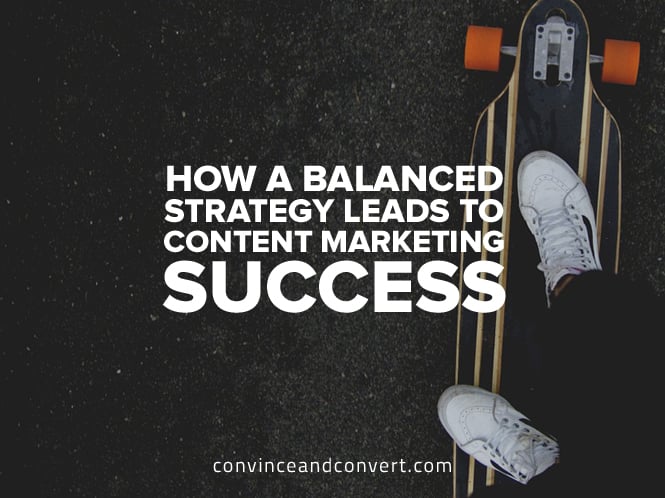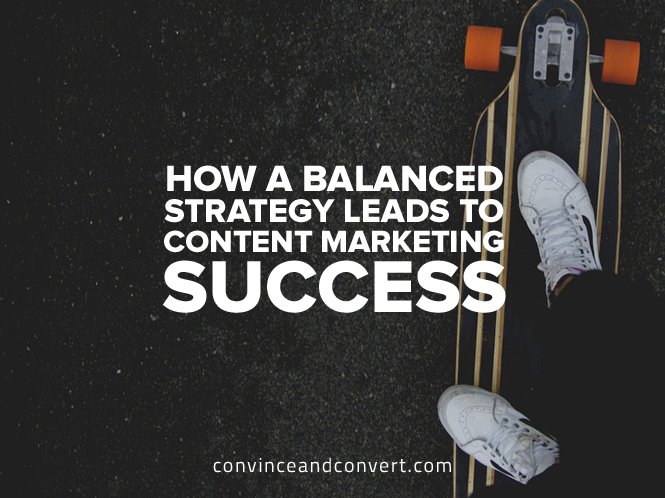How a Balanced Strategy Leads to Content Marketing Success. Still, Ben answered his own question with a resounding yes, “as long as you know what to expect.”1 Ben also claimed that “unrealistic expectations” are the cause of failure to compute ROI. Obviously, not all pieces of content can be evergreen, but peppering your content marketing strategy with a few evergreen pieces is a smart move. These are what one might call “smart popups.” They recommend to website visitors pieces of content from your existing pool that are relevant to them. Here is what Neil Patel has to say on the matter. Even if your company doesn’t have a dedicated SEO team, and even if you don’t outsource SEO, the natural power of your content will do the work—as long as it is quality content that gets traction. Authority equals trust, and trust leads to sales. So we’ll say it again: Smart content has the power to create stars. Once that’s happened, who benefits? When a company is spearheaded by a content star, it gains so much in Traction, Traffic, and Trust.

In a recent article published here on the Convince & Convert blog, Ben Plomion of GumGum asked, “Is Content Marketing Really Worth It?” It’s a valid question in light of the quasi-chaos that surrounds content marketing, especially in the B2B sphere; marketing departments are churning out content at a fast pace but mostly fail to make the dent they are aiming for. Still, Ben answered his own question with a resounding yes, “as long as you know what to expect.”1
Ben also claimed that “unrealistic expectations” are the cause of failure to compute ROI. I couldn’t agree more. Coordinating expectations in advance would definitely help set content marketing on a better course. He added:
“Many marketers struggle to set up the right goals and processes before they start publishing. Then, when there aren’t enough sales opportunities to satisfy the execs, there’s a mad scramble to figure out what went wrong. At that point, it’s already too late; your content was destined to fail.”
In this case, I would argue that it isn’t the content that has failed, but the execs. Their failure is trying to enforce metrics from different marketing disciplines, like inbound, on content marketing. No matter how hard you try, you won’t be able to fit content marketing into a spreadsheet.4 (highlight to tweet) Judging a piece of content through the prism of say, PPC, is like being disappointed of your cat that it doesn’t fetch when you throw a stick.
We All Benefit From Content Marketing
Content marketing is still a work in progress, in the trial and error phase. That is the main reason for the waste associated with it—that and a lack of strategizing. The write-first-think-later approach runs rampant in the B2B marketing sphere, which is completely counterintuitive to anything else marketing departments do. Without a doubt, the reins haven’t been put on content creation yet.
But there are tremendous benefits to content marketing that are already apparent, as Ben listed in his article—namely, brand lift and brand appreciation that translates to trust.
Even if content marketing generates zero leads, it comes with such an impressive added value: a massive trove of informative, educational content of professional grade to serve as a knowledge base for every industry. We have gotten so accustomed to it that we don’t pause anymore to appreciate it. Ask any question, and it will be answered; search for any process, and you shall find; look for any how-to video, and it’s there. This is straight-up amazing, and it’s all content marketing’s doing.
There are many more pieces to the content marketing puzzle—pieces that amplify its worth.
Extending Content Shelf Life
Content can have a much longer shelf life than you might expect. The first trick up a marketer’s sleeve is to write evergreen content: content that isn’t time-sensitive and will not lose its punch after months or even years. Obviously, not all pieces of content can be evergreen, but peppering your content marketing strategy with a few evergreen pieces is a smart move.
A fine example for evergreen content can be found…

COMMENTS